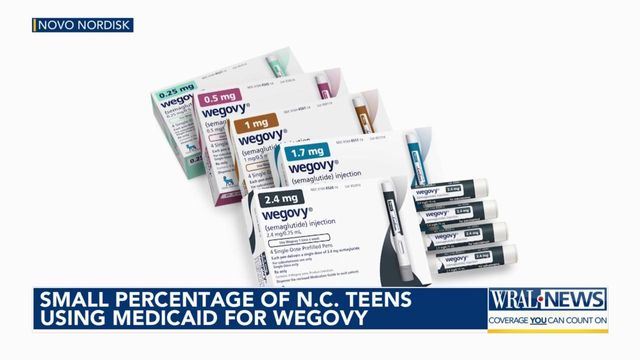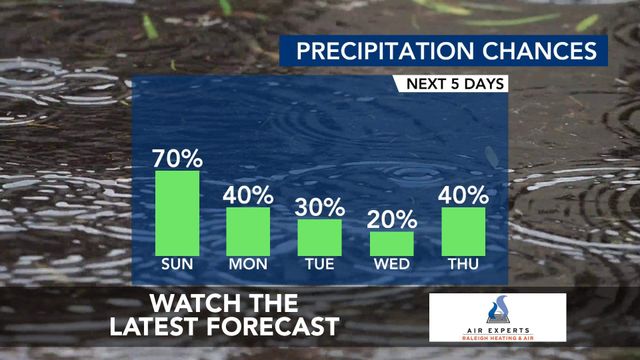NC teens using Wegovy: Impact of weight loss medications on teens
Weight-loss medication Wegovy has quickly become a popular aid to weight management for many patients - including some teenagers.
The Food and Drug Administration (FDA) approved the medication for use in patients under 18 in late 2022.
Dr. Jennifer McCauley with UNC Health works closely with patients with weight management issues.
Most of her patients are adults, but McCauley said discussions about starting weight loss medications are sometimes had with younger patients.
“I do think it’s very important that when we start medication for weight loss, there’s a long conversation about why we’re doing that, what we’re trying to achieve and what happens when we stop the medication,” said McCauley.
The doctor said those kinds of conversations and discussions surrounding body positivity are especially important to have with younger patients.
“It’s really important not to be hyper-focused on weight or even BMI but really understand and meet teens where they’re at in terms of their own health goals,” said McCauley. “Also, when we’re working with teens, we need to find out if teens are comfortable talking about that to begin with.”
According to recent data provided to WRAL News by the North Carolina Department of Health and Human Services, there were 60 paid Wegovy claims for Medicaid beneficiaries 18 years old and younger between January 1, 2023, and January 22, 2024.
The total cost of the claims during that same period was $82,627.
The state’s online Medicaid enrollment dashboard shows there are an estimated 1,359,537 Medicaid beneficiaries under the age of 18 in North Carolina.
That means only 0.004% of that population using Medicaid is currently taking Wegovy. However, these data points do not factor in additional teens that may be prescribed the medication through private insurance.
“I think it’s used probably more in the adult population in large part because we’ve had some comfort in some of these medications in treating diabetes,” said McCauley. “They’re the same in many respects to what we’re using for weight loss, so we’ve had a little bit more experience in using them for diabetes and seeing those effects for people.”
McCauley said she factors in several things when considering weight-loss medications for patients of any age, including if the patient has already tried achieving weight-loss goals via other means, like exercise or diet changes.
“We have a whole population of adolescents that maybe struggle with other medical complications such as autism or chromosomal differences that we know for sure are at-risk for obesity,” said McCauley.
In some instances, the doctor believes patients may have increased benefits from starting weight loss medications at younger ages.
“We may be able to halt some of the weight-related complications such as diabetes, cardiovascular disease, metabolic fatty liver and increased cancer risk associated with obesity,” said McCauley. “If an adolescent has obesity, 80% will carry that into adulthood.”











